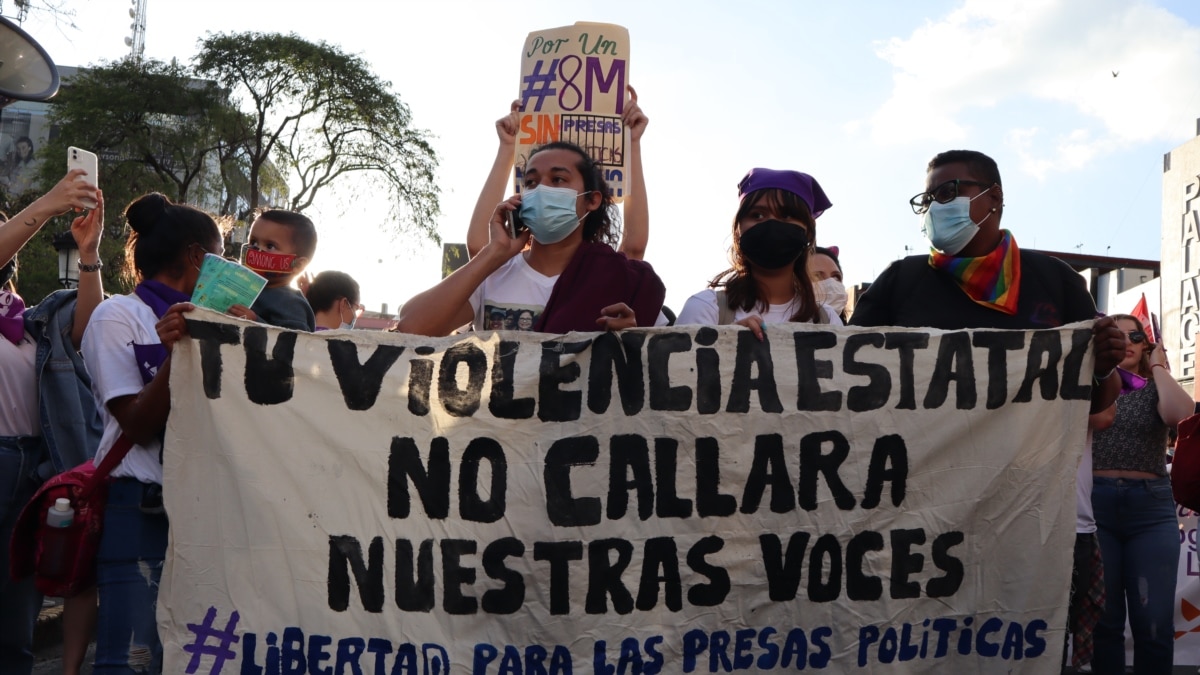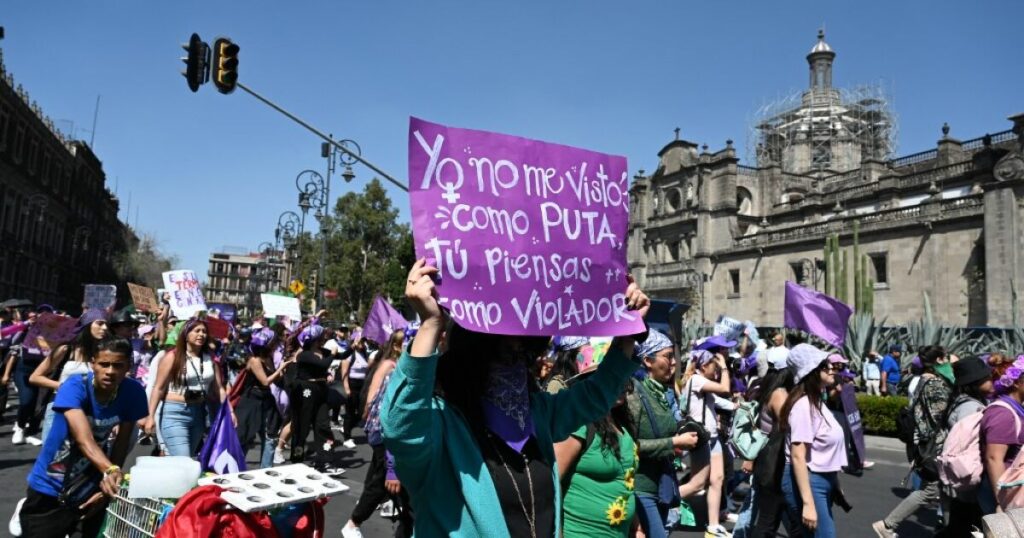For the fifth consecutive year, Nicaraguan women opposed to the government of Daniel Ortega have not been able to take to the streets to demand their rights. However, this was not an impediment for those who are in exile in countries like Costa Rica, the United States, Spain and Mexico from taking to the streets to demand their rights.
The young Samantha Jirón, 23, who a year ago was in a women’s prison in Nicaragua, assures that the demands – such as the restoration of democracy and equality – still continue.
“A year ago they asked for my release… but more than 100 women political prisoners are still detained – not only in Nicaragua, but also in Cuba, in Venezuela – and we are going to continue demanding their release,” he said in statements to the voice of america.
For her part, feminist sociologist María Teresa Blandón, director of the organization La Corriente, stressed that there are several challenges for women in Nicaragua. In her case, her intention was to demonstrate in Costa Rica on the occasion of 8M.
In Nicaragua, demonstrations have been prohibited since 2018, when anti-government protests arose that left more than 300 deadaccording to international organizations.
“Nicaragua, like many of the Central American countries, is a deeply macho society. There are inertias that come from the past, which proclaim a very crude, very exhibitionist machismo,” Blandón said in an interview with the VOA.
According to the sociologist, who defines herself as a feminist, in Nicaragua there was an alliance between the “conservative, misogynistic” State and civil society groups that resulted in the absolute criminalization of therapeutic abortion or the total rejection of the family rights of women. LGBT people.
“In such a way that, what I am saying is that it is very difficult, and that is why it is very dramatic that the Ortega-Murillo regime has closed practically all the civil society organizations that defended the rights of citizens,” Blandón denounced. .
official marches
In Nicaragua, the government of Daniel Ortega summoned the “revolutionary women” on social networks, alluding to the state workers in the country.
On Wednesday morning, Vice President Rosario Murillo stressed that this March 8 her government “celebrates” the “blessing that we have reached today, brave, courageous and valuable, assuming all challenges.”
On the occasion of International Women’s Day, the Nicaraguan government also released 230 women who remained deprived of liberty for different crimes.
Connect with the Voice of America! Subscribe to our channel Youtube and activate notifications, or follow us on social networks: Facebook, Twitter and instagram.

















